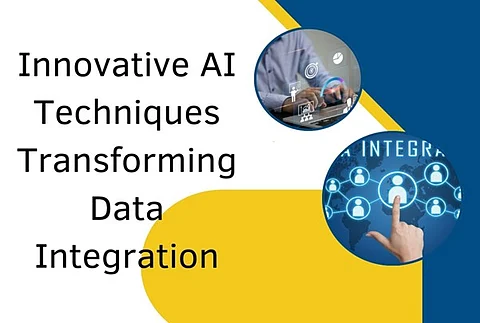

The integration of many data sources is a major problem for enterprises worldwide in this era of unparalleled data development. Adisheshu Reddy Kommera explores how artificial intelligence (AI) is revolutionizing data integration techniques in order to address these issues. His work demonstrates how AI-driven solutions may boost security, facilitate real-time data processing, and increase scalability—all of which contribute to the creation of more robust and effective data ecosystems.
In a time of enormous data volumes, conventional integration techniques frequently fail to meet the demands of intricate and extensive procedures. Advanced, AI-driven solutions are required for scalability and seamless data integration due to the exponential growth of data quantities. Algorithms for machine learning let businesses to dynamically manage resources, predict growth needs, and prevent possible systems.
Integrating data from several sources presents significant security challenges, especially when handling sensitive data. AI technologies are essential for strengthening data integration frameworks with enhanced security. Sophisticated anomaly detection algorithms can rapidly identify strange data access patterns, alerting users to potential threats before they worsen. AI-powered identity and access management systems offer adaptive, behavior-aware controls that protect data privacy and make access simple. Furthermore, machine learning algorithms enable proactive data classification, ensuring regulatory compliance and protecting private information. This approach preserves integration processes without compromising usability or efficacy.
Real-time data integration has become crucial for companies trying to make quick, educated decisions. AI enables real-time processing by utilizing algorithms that efficiently manage rapidly flowing data streams. Neural network-powered stream processing systems, for example, can quickly analyze and combine incoming data, allowing for prompt responses to new trends. This is essential for applications such as fraud detection, predictive maintenance, and personalized user experiences. AI's adaptability ensures consistent performance when data patterns shift, preserving data reliability and quality while enhancing decision-making across a variety of real-time operations.
One of the biggest issues in data integration is mapping and ensuring data quality. AI streamlines these tasks by using machine learning models to automate schema matching and anomaly detection. These models speed up the mapping process by identifying intricate, hidden connections between various data sources. The capacity of machine learning to offer real-time mistake correction and deduplication greatly improves data reliability. Additionally, by aiding in the semantic annotation of unstructured data, Natural Language Processing (NLP) makes integration more comprehensive and seamless. By increasing the speed and precision of data integration, this suite of AI tools enhances overall data quality.
By moving from static, rule-based models to intelligent, adaptive frameworks, AI revolutionizes process automation. Data workflows optimize themselves over time using reinforcement learning, using historical performance to improve operations in the future. In order to ensure seamless, responsive integration, this promotes self-optimizing Extract, Transform, Load (ETL) processes that adjust to real-time data properties. Additionally, metadata management and data lineage tracking—two essential elements of strong data governance and regulatory compliance—are improved by AI-driven automation. By improving efficiency and responsiveness across data ecosystems, these adaptive capabilities support the upkeep of a robust and effective integration framework that changes to meet changing operational requirements.
For successful AI integration into data processes, collaboration between data engineers, architects, and business executives is essential. This partnership aligns technical expertise with strategic business goals, ensuring AI solutions are tailored to specific organizational needs. By fostering synergy, teams can drive innovation, enhance adaptability, and create solutions that address real-world challenges effectively. Such collaborations enable ongoing improvements, optimize resource utilization, and ensure cost-efficient outcomes. This unified approach establishes a framework for continuous growth, ensuring that AI-driven advancements remain aligned with and supportive of the organization’s long-term strategic objectives.
In conclusion, Adisheshu Reddy Kommera’s insights into AI-driven data integration underscore its transformative impact. With benefits spanning scalable data management, robust security, real-time processing, and adaptive automation, AI emerges as a crucial driver for modern data ecosystems. As organizations increasingly depend on data to guide strategies and operations, adopting these AI techniques is vital for sustaining a competitive edge and ensuring efficient, secure, and future-ready data integration practices.
